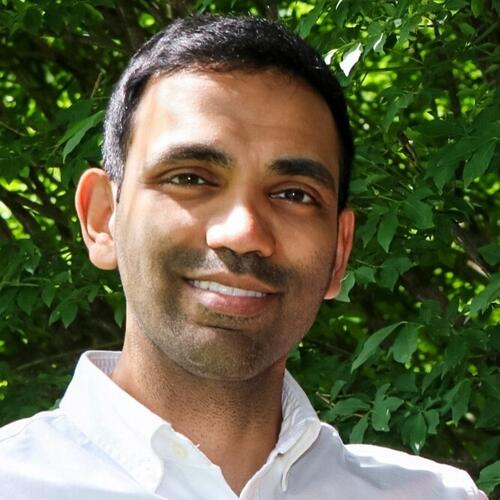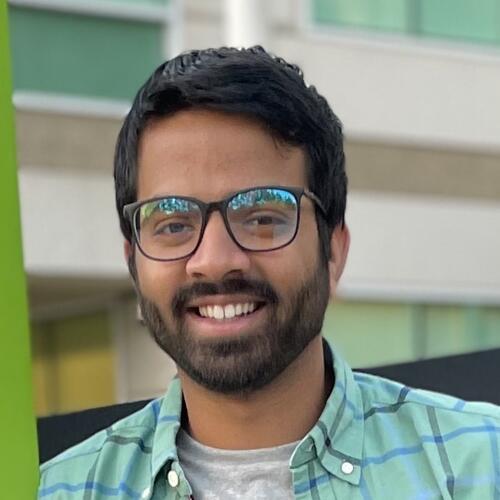
Solving problems leads to widespread impact
RelayMD is improving the specialist referral process for health-care practitioners, leading to positive outcomes for patients

RelayMD is improving the specialist referral process for health-care practitioners, leading to positive outcomes for patients
By Naomi Grosman VelocityPrimary care physicians are sending referrals with a keyhole view of the network of specialists available — at great cost to patients — and RelayMD founders Dhvani Patel and Dr. Ali Qamar are pioneering a way to improve the process.
RelayMD was one of four finalists to receive $5,000 at Velocity’s $5K Pitch Competition in November. Patel and Qamar said winning the competition is one stop on the journey to solve this “perpetual and recurring issue” in the Canadian health-care system.
Dr. Qamar, who is a primary care physician in the Niagara-Hamilton region, likened the current referral process to using a “mental map” where doctors are relying on their own professional network and memory to find a specialist.
A few limiting factors of the referral process at that doctors must find a specialist in a specific geographic location, based on whether they have expertise in the right area of that specialty, look at the wait times, and there is no central resource to help with the process, he said.
“The current process leads to delays in care and complications can arise during that wait, patients get frustrated and can end up in the emergency room because navigating the health-care system is challenging, fragmented and they rely on family doctors to navigate it for them,” Dr. Qamar said. “Looking at critical things like health-care, people assume there is a level of transparency but referrals are a completely manual process.”

Dr. Ali Qamar, co-founder of RelayMD.
He said beyond delays, referrals are sometimes denied because the primary practitioner doesn’t have the right details about the specialist to make an accurate referral, leaving the patient without specialist care for even longer.
RelayMD’s online, subscription-based platform provides a directory of specialists for physicians and nurse practitioners based on wait times, subspecialties, location and other factors that impact the efficiency of the referral. The product is available for individual practitioners and clinics, depending on the users’ needs.
Since the product’s launch in April, the new company has amassed over 100 users, including clinic and individual practitioners. RelayMD is now negotiating with a large virtual clinic in Canada to onboard more users to the platform, with the target of reaching 300 users by early next year.
Fourth-year software engineering student Dhvani Patel’s interest in entrepreneurship started in middle school and has ripened during his time at the University of Waterloo.
He said through his co-op experience he realized he wanted to pursue entrepreneurship seriously.
“I found that working at a bigger organization I couldn’t have the large, positive impact I knew I wanted to make,” he said. “Helping to code RelayMD’s platform feels more meaningful and I can have ownership over my work, beyond just the code.”
He met Qamar through an online matching tool for entrepreneurs when he originally had his sights set on solving a different problem related to electronic medical records (EMR) software, which is not uncommon for software engineers, Qamar said, who was looking for a software engineer with whom to work on the referral problem.
With Qamar’s experience practicing medicine and Patel’s engineering expertise, they could see the problem from all sides before attempting to solve it.
"Solving problems with EMRs is a big topic but there are more, smaller problems, but being outside the medical system it’s difficult to understand,” Patel said. “It’s hard to come up with solutions if you’re not exposed to the problems and this is a more organic way to solve a problem.”

Dhvani Patel, co-founder of RelayMD.
Qamar said it was Patel’s curiosity that propelled the conversation beyond their first call.
“He wanted to get down to a functional understanding and I thought that was very refreshing,” Qamar said. "A lot of people on the tech side often have presumptions about the health-care system and how they can build something to change it, but Dhvani is very curious and really wanted to learn about the system.”
Within two weeks of working together, the pair had created a specialist directory and Qamar said using it for the first time was eye-opening.
“At that moment I knew it was brilliant and that I could have confidence in referrals,” he said.
Once the product was ready to be developed further, they decided to look for funding options, which is when they decided to apply for Velocity $5K.
“As we started scaling, we had more hypotheses to test and we wanted to get connections in the health care system, that’s when we became intentional and when we applied for the Velocity $5K,” Patel said.
Patel said the software’s current iteration is only the beginning. They are already working on an extension to track referrals that would close the referral loop for doctors and patients.
“Tracking the referral is critical,” Patel said. “Right now, once a referral is sent there’s no way to track it, and often the practice is playing phone tag with others to find out its status. This is how patients can fall through the cracks.”
Building the extension is more complex, particularly due to privacy protection requirements. The data RelayMD uses currently is all public, but the tracking piece would involve patient information.
Patel and Qamar said these problems are not insurmountable, there are systems available to ensure software including private information can be used according to regulation and law. They are past the idea phase and are moving into design and market research.
“We want to get our software to all practitioners that have this problem,” Patel said. “Getting our product to all parts of primary care would be our biggest milestone — when it becomes the standard of care.”
Qamar said the feedback on RelayMDs platform has been very encouraging so far. He’s heard users who, after four rejected referrals, got their patient to a specialist within two weeks, and others who have saved months on referral wait times.
“What does it mean for a health care outcome to wait for months? It could be quite dramatic for a patient that is waiting for specialist care to reduce that time,” Qamar said. “Now it’s just a matter of scaling this out.”
Patel, who pitched on behalf of RelayMD, said the support he received and connections he forged over the weeks leading up to the finals were crucial to better communicate the startup’s business proposition.
Especially the last practice pitch at Velocity where full-time founders and staff gave finalists feedback on their pitch.
“All eight teams had different slides after that final session and everyone's pitch felt a lot smoother,” Patel said. “RelayMD has this pitch deck I'm sure we'll be able to use at other points, talking to other people.”
Read more about Velocity’s $5K pitch competition and other programs.

Read more
A company that uses artificial intelligence to help make water utilities safer and more efficient was among the grand-prize winners at the Velocity Fund Finals held today at the University of Waterloo

Read more
A company aiming to create the world’s first fully autonomous airline service is among the four winners of the Concept $5K Finals.

Read more
Clearco challenges the status-quo with unbiased investment opportunities for entrepreneurs
The University of Waterloo acknowledges that much of our work takes place on the traditional territory of the Neutral, Anishinaabeg, and Haudenosaunee peoples. Our main campus is situated on the Haldimand Tract, the land granted to the Six Nations that includes six miles on each side of the Grand River. Our active work toward reconciliation takes place across our campuses through research, learning, teaching, and community building, and is co-ordinated within the Office of Indigenous Relations.